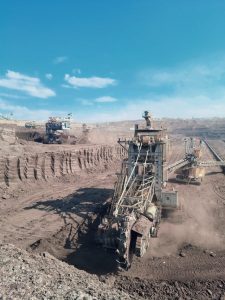Mining presents a significant opportunity for delivering resources to enable economies thrive and raise the standard of living in a reality created by consumption, where the bulk of goods fail to be recycled.
Mineral mining and processing supply us with the basic elements necessary to construct much of the structures required to support modern society. While need for some resources, such as coal, is declining, demand for others, such as copper, is increasing as product innovations and technology necessitate new materials.
The mining process, on the other hand, remains intensive and invasive, and practices frequently have significant environmental repercussions on the local ecosystem as well as broader ramifications for the planet’s ecosystem quality.
Mining’s Effects on the Environment
Mining and Water Usage
Many phases of mining and mineral treatment necessitate the use of water, resulting in large water footprints. Increased water utilisation mining activities can result in surrounding residents having less access to unpolluted freshwater resources and a local area experiencing water stress.
Pollution caused by Mining
Many documented cases of environmental problems caused by mining projects have been reported, with mining tailings leaks being the most common cause. The components left behind during the commercially valuable percentage of the material has been mined are known as mining tailings.
Emissions of Greenhouse Gases from Mining
It’s also vital to be aware about the influence of land degradation on greenhouse gas emissions. As land is scraped for quarrying, carbon dioxide as well as other gases in the atmosphere are released leading to the collapse of flora and sediments.




